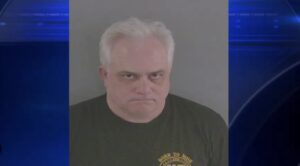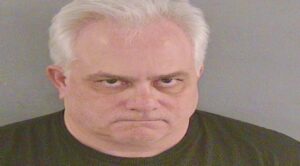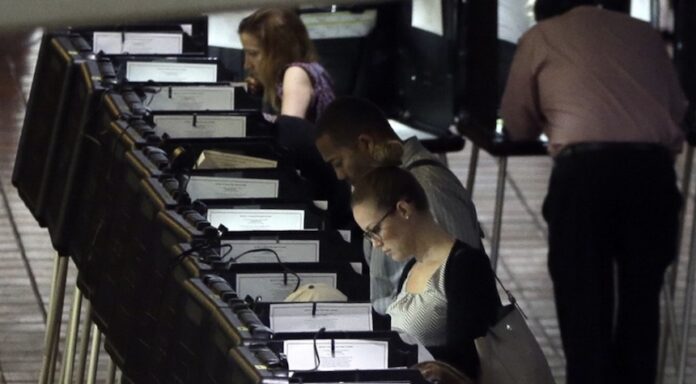We’re told ever and over and over again that voter fraud doesn’t exist. We’re expected to take the Left’s claims at face value and join them in insisting, “There’s nothing to see here.”
Why has Florida Governor Ron DeSantis’s Election Integrity Unit uncovered more than twenty fraudulent voters?
The latest incident comes to us from The Villages, where Robert Rivernider was arrested and charged with voter fraud this week. Just four days after his father’s death, Rivernider forged the man’s signature and mailed his ballot to the elections office. Fortunately, an alert clerk at the Board of Elections noticed the fraudulent ballot, which was not counted in the 2020 election.
I have written before that it is nearly impossible to detect this type of fraud. Rivernider mailed his ballot four days late, so it wasn’t counted. Had the perpetrator sent it in on time, the ballot may have been lost and not counted. However, Rivernider was decent enough to mourn his father’s death before committing the crime.

What about the ballots with fraudulent votes that were not counted?
Florida has been very good at purging voter rolls and prosecuting fraudsters. Nearly a million names were removed from the voter list since DeSantis’s election, and almost 1,200 cases of voter fraud have been referred to prosecutors. You will be prosecuted for any election crime to the fullest extent possible. ”
But some states refuse to maintain voter rolls and conduct fraud investigations, and they even try to conceal what’s going on. They violate public records laws.
The Public Interest Legal Foundation (PILF) has sued in several states to gain access to Electronic Registration Information Center (ERIC) data reports concerning possible deceased voters on the state’s rolls. ERIC is an interstate compact that shares voter roll data to check for deceased voters. It’s an important program, but it’s mired in secrecy. ERIC’s membership agreement stipulates that the reports cannot be shared with the public. PILF says the secrecy agreement violates the National Voter Registration Act of 1993, “which gives the public a right to inspect voter rolls and voter list maintenance documents.”

The U.S. District Court for Colorado has denied a motion filed by Secretary of State Jena Griswold, to dismiss PILF’s lawsuit.
The judge ruled in this case that the lawsuit could continue. He stated that “NVRA disclosure provisions should be construed to favor broad disclosure.”
My colleague previously stated that Colorado’s Secretary Of State Jena Griswold must stop fighting transparency, and give these ERIC Reports to the public.

Alabama Florida Iowa Louisiana Missouri Ohio West Virginia Virginia and Texas have recently left ERIC citing concerns over partisanship. The states were also not happy with an ERIC requirement for the states to send voter registration information out to all adults who are eligible but are unregistered.
It’s wonderful that states in the red like Florida and Ohio have reacted to ERIC’s lack of transparency by maintaining their voter lists, but what about blue states that don’t want to purge? Cheating is easier when you live in a state that wants to mail a ballot out to everyone, including children, dogs, and even dead people.
In this example, where the Florida voter casts a ballot on behalf of his deceased father, there is nothing to stop him from committing fraud. This is because the state does not remove dead voters from its rolls.
In the run-up to an election, I think there are few things more important than voter integrity and a clean voter list.




